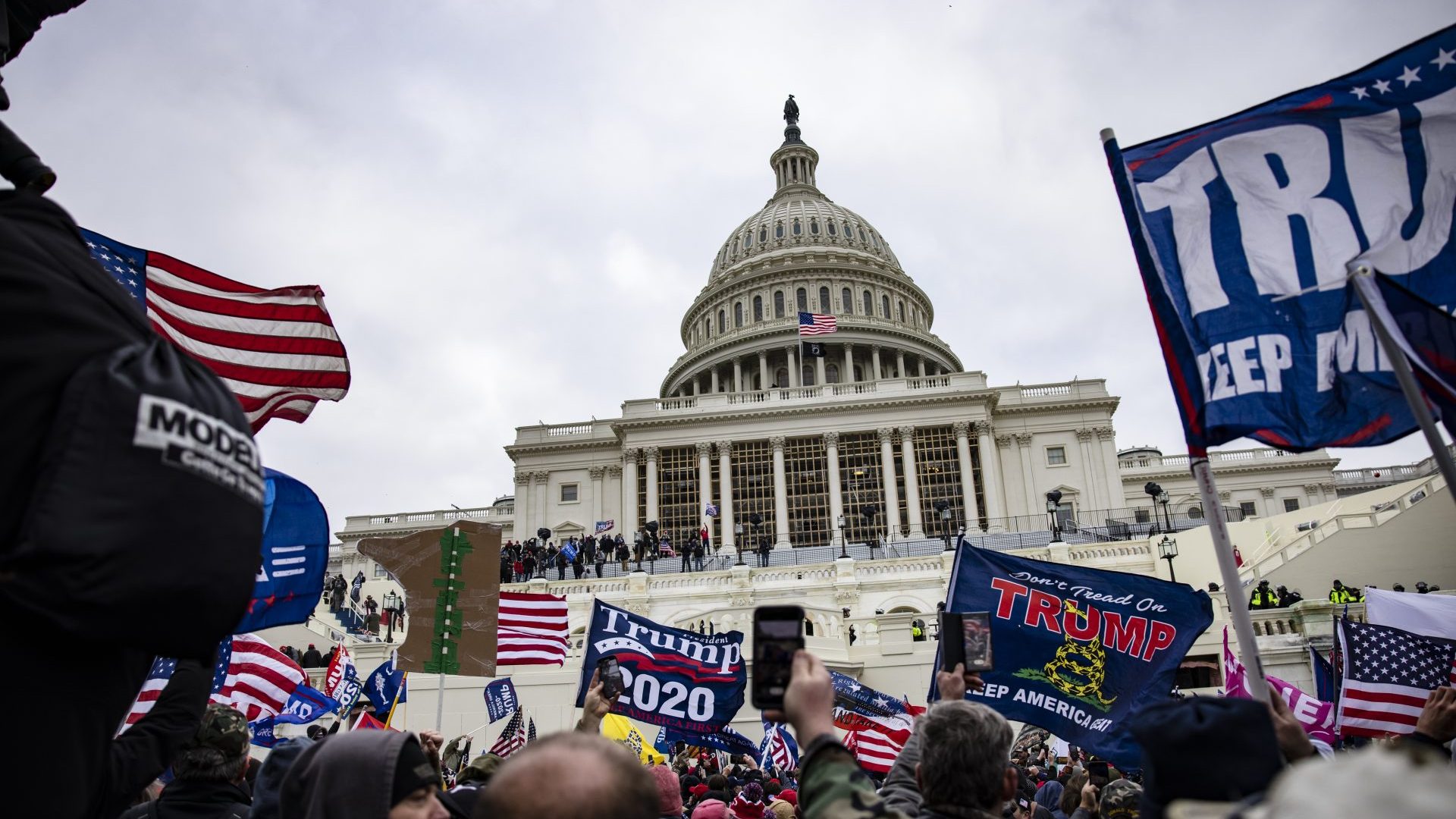Shortly after Donald Trump was elected, I had coffee and cake with a one-time white nationalist. He was one of dozens of former and current extremists I have interviewed for my reporting on radicalisation, many of whom I have kept in touch with.
But he was crestfallen. During the first Trump administration, he was a member of a notorious far right group that railed against diversity and had strong antisemitic undertones. Repentant, he has spent the intervening years trying to atone for past beliefs.
But after the years of self-flagellation, death threats, and hours purging his ideology with the help of deradicalisation experts, all his prior far right beliefs now appear to be run-of-the-mill daily rhetoric in US public life.
Openly denigrating people because of their ethnic origins, promoting the antisemitic “Great Replacement” conspiracy theory, and even storming the US Capitol are now apparently acceptable behaviour.
He was putting a brave face on it all, but clearly this abrupt change in the political weather was confusing. Now he’s gone dark. Since I last saw him he hasn’t responded to any of my messages or answered my calls. I’m not suggesting that he has returned to the far right, but he no longer seems compelled to speak out against it.
The American view of extremism has shifted so quickly. Trump set the tone on inauguration day by pardoning 1,500 people linked to the January 6 Capitol riot. Many of them were linked to far right groups. The message was clear: political violence is fine, so long as it’s in Trump’s interests. Since then, millions of dollars of funding for domestic counter-extremism programmes have been cut.
Trump also withdrew funding for a national database of domestic terrorist incidents, hate crimes and school shootings. The last figures on the database, before the plug was pulled, showed a 25% increase in such incidents in the first two months of 2025. Now, the federal agents with expertise in monitoring extremism and terrorism have been reassigned to assist in identifying undocumented immigrants.
Under the previous administration, the FBI identified extremist violence – in particular the threat posed by far right groups and individuals – as the most pressing domestic concern. The current administration does not concur. The FBI’s 2025 annual threat assessment, the first under Trump’s new FBI director Kash Patel, did not even mention far right extremism. Now, when Trump uses the word “extremist” or “terrorist”, he is usually referring to migrants, or people protesting against his policies.
Three of his top national security officials – Patel, FBI deputy director Dan Bongino and Joe Kent, the nominee to head the National Counterterrorism Center – have links to extreme conspiracy theories, election denial narratives, and far right figures. A 22-year-old Trump acolyte with no counterterrorism experience had been put in charge of a key terrorism prevention hub.
All this comes as the US is facing an increasingly complex extremist threat. This year began with two attacks on New Year’s Day: a former soldier-turned-Islamic State supporter killed 14 people in a truck ramming in New Orleans. In Las Vegas, a serving US soldier blew up a Tesla cybertruck in front of the Trump International Hotel. His motive and ideology remain unclear, an increasingly common theme in extremism events.
Luigi Mangione, charged with murdering United Healthcare chief executive Brian Thompson in December, has a social media trail suggesting both left wing and socially conservative leanings. Thomas Matthew Crooks, who tried to assassinate Trump at a rally in Butler in July last year, showed a similar history of ideological inconsistency. In the most recent example of horrifying political violence, a doomsday prepper shot dead a Democratic lawmaker and her husband in Minnesota.
These individuals fall outside the narrow ideological bands into which the current national security team like to corral extremists. In my book about extremism – Far Out, published in 2022 – I argued that the ideology matters much less in the radicalisation process than the feeling of having some meaning and purpose in life. This means that identifying and helping people susceptible to extreme narratives needs to happen way before they start searching online for their cause.
These are the kinds of preventative programmes getting cut, just as the political atmosphere here is becoming ever more febrile. And the consequences will go well beyond me being ghosted by one of my contacts.
Charlotte McDonald-Gibson is the author of Far Out: The Lives of Former Extremists and What They Teach Us



